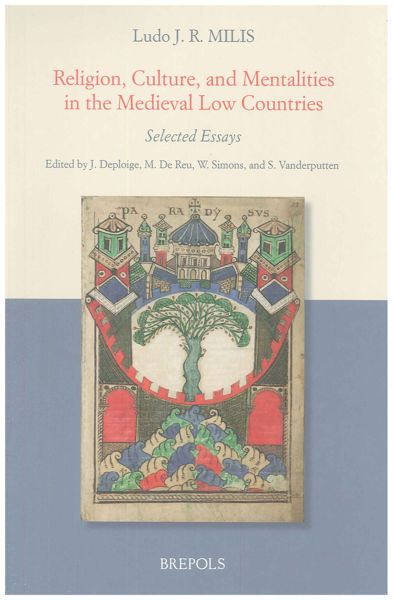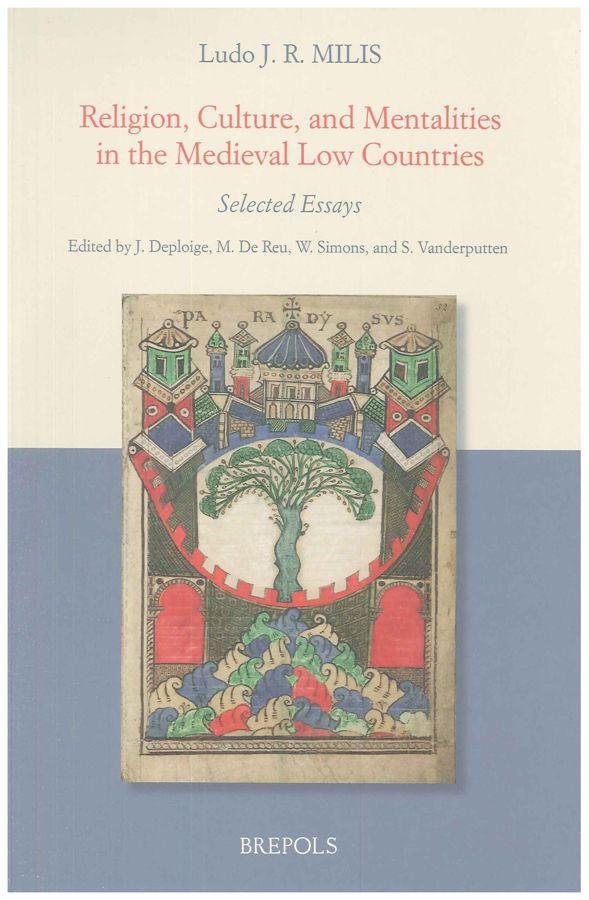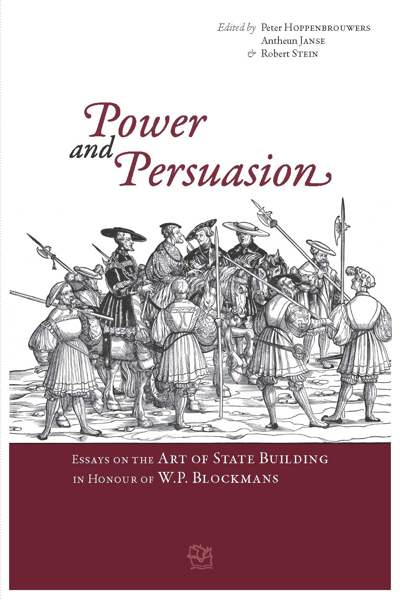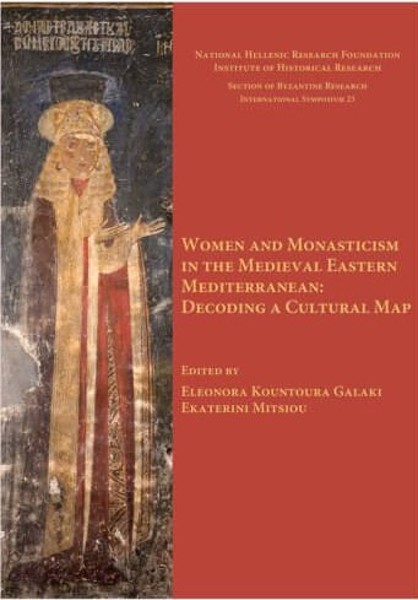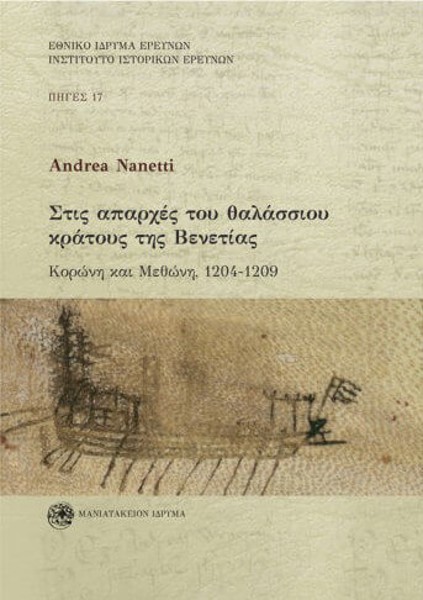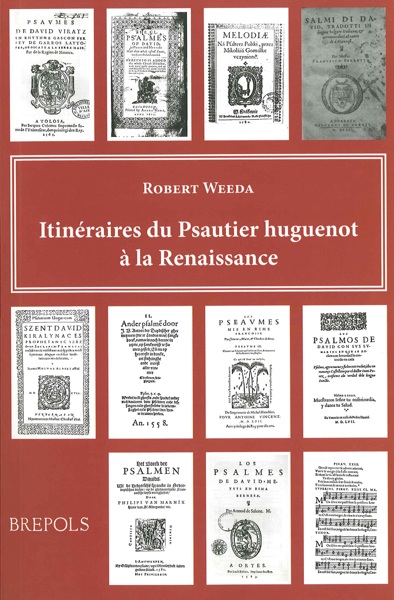
Ludo J.R. Milis
Religion, Culture, and Mentalities in the Medieval Low Countries
Selected Essays
Jeroen Deploige, Martine De Reu, Walter P. Simons, Steven Vanderputten, Laura Galoppini, Luc Jocqué, Ann Kelders, Veronique Lambert (eds)
- Pages: 388 p.
- Size:160 x 240 mm
- Illustrations:9 b/w
- Language(s):English
- Publication Year:2005
- € 50,00 EXCL. VAT RETAIL PRICE
- ISBN: 978-2-503-51890-9
- Paperback
- Available
- € 50,00 EXCL. VAT RETAIL PRICE
- ISBN: 978-2-503-53989-8
- E-book
- Available
"De bundel geeft een goed overzicht van vier decennia onderzoek naar de religieuze en culturele geschiedenis die Milis' leermeesters voordien niet hadden aangesneden." (EVL, in: Tertio, jaargang 16, nr. 817, oktober 2015, p. 4)
Ludo Milis graduated from Ghent University in 1961 as the last student of François-Louis Ganshof, who in the years after Henri Pirenne’s retirement was the most prominent representative of the famous “Ghent School” of medieval history. Milis’s own academic career at Ghent span four decades in which he followed in the footsteps of his masters, yet also explored new directions. Like his predecessors, Milis always attached great importance to the critical examination of primary sources, but for him, such work must serve broader historical inquiry guided by a precise set of questions and methodological rigor. His interests lay primarily in the study of religious and cultural history, which previously had been neglected at Ghent; he was also a pioneer in the history of mentalities in the Low Countries. Milis’s research and thought found expression in several books, among which his Angelic Monks and Earthly men. Monasticism and its Meaning to Medieval Society (Boydell, 1992), translated into many languages, was probably the most influential.
This collection contains eleven essays published between 1969 and 1990. Most of them appeared in Dutch or French and have now been translated into English; two essays previously published in English were newly edited. All provide unique insight in the major themes of Milis’s work: the religious history of the Low Countries during the early and high Middle Ages, as well as the problem of religious conversion and persuasion; the rise of regular canons in the eleventh and twelfth centuries (also the subject of his doctoral dissertation on the order of Arrouaise, published in 1969); the uses of power and ideology; and the history of French Flanders. All bear witness to Milis’s inspiring ability to ask original, probing questions and to write historical syntheses accessible to a wide audience.
The collection is presented to Ludo Milis by his students on the occasion of his retirement and his sixty-fifth birthday.
Ludo Milis is in 1961 de allerlaatste student die afstudeert met een scriptie bij François L. Ganshof, na Henri Pirenne decennia-lang het belangrijkste gezicht van de gerenommeerde historische school van de Gentse Universiteit. In dat zelfde jaar start hij meteen een boeiende academische carrière – als onderzoeker en vanaf 1974 ook als inspirerend lesgever – die zal duren tot aan zijn emeritaat in 2003. In de lijn van zijn leermeesters hecht L. Milis steeds veel belang aan het rechtstreekse onderzoek van de primaire bronnen, maar anders dan in de positivistische traditie waarin hij is opgeleid, vormt bronnenkritiek voor hem nooit een doel op zich: zij staat altijd ten dienste van een wijdere historische vraagstelling en van methodologisch stevig doordacht onderzoek. Zijn belangstelling gaat van meet af aan vooral uit naar de religieuze en culturele aspecten van de middeleeuwse samenleving, die voorheen te Gent nauwelijks aandacht gekregen hebben. L. Milis is ook één van de eerste mediëvisten uit de Nederlanden die zich expliciet met middeleeuwse mentaliteiten gaat inlaten. Zijn historische belangstelling, aanpak en ideeën zijn wellicht het meest sprekend uitgedrukt in zijn boeken, waarvan het in vele talen verschenen Angelic monks and earthly men. Monasticism and its meaning to medieval society(Boydell, 1992) het invloedrijkst is.
Deze bundel verzamelt elf essays, verschenen tussen 1969 en 1990, die voor de internationale onderzoeksgemeenschap minder toegankelijk waren, maar een bijzondere kijk bieden op zijn veelzijdig oeuvre. Op twee bijdragen na, die voor deze bundel een nieuwe redactie kregen, is geen van deze essays eerder in het Engels verschenen. Uiteraard bekleedt de ontwikkeling van het twaalfde-eeuwse kanunnikenwezen – waaraan L. Milis’ doctoraatsverhandeling uit 1967 is gewijd – een belangrijke plaats in deze selectie. Daarnaast komt ook het brede thema van de religieuze geschiedenis aan bod, waarin zijn talent voor historische synthese, doorweven met pregnante vraagstellingen, duidelijk wordt geëtaleerd. De selectie biedt tevens een aantal case studies waarin L. Milis’ fascinatie voor de wijze waarop ideologie en macht een samenleving en haar culturele uitdrukkingen wisten te kneden, duidelijk naar voren komt. Ten slotte bevat de bundel ook een aantal minder gekende maar zeer originele bijdragen over de taal- en cultuurgeschiedenis van Frans-Vlaanderen, waarin naast zijn historische expertise, ook zijn Vlaamsgezindheid en Groot-Nederlandse idealen kenbaar worden.
De bundel wordt prof. dr. Ludo Milis van harte aangeboden door zijn leerlingen ter gelegenheid van zijn emeritaat en zijn 65ste verjaardag.
Part I - Religion & Conversion
The Conversion of the Low Countries and Church Institutions until c. 1070 — The Church in the Low Countries between Gregorian Reform and Avignon — Conversion: A Never-Ending Process
Part II - Hermits & Canons
The Regular Canons and Some Socio-Religious Aspects About the Year 1100 — Hermits and Regular Canons in the Twelfth Century
Part III - Power & Ideology
Justus ut Palma. Symbolism as a Political and Ideological Weapon on the Seals of Thierry and Philip of Alsace, Counts of Flanders (1128-1191) — Dispute and Settlement in Medieval Cenobitical Rules — The Byzantine Cross of Eine
Part IV - Language & Boundaries
The French Low Countries: Cradle of Dutch culture? — The Linguistic Boundary in the County of Guînes: A Problem of History and Methodology — State Boundaries and Ethnic Alienation: Perspectives on Research into the Alienation Processes of French Flemings
